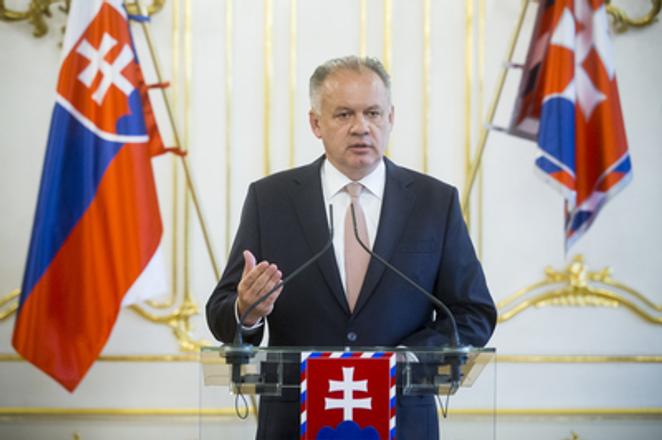In 2018, the Slovak people withstood the test because they proved they could defend the values that strengthen democracy. But it is just the start of a tough journey, President Andrej Kiska said in his New Year’s address, aired on the public-service RTVS in the early afternoon of the first day of 2019.
“As President of the Slovak Republic, I am delivering my New Year’s address for the last time,” Kiska said at the start of his speech. He thus confirmed his earlier decision from May 2018, when he announced he would not run for re-election in the upcoming presidential election in 2019. Following the events of the past year, Kiska’s political future has been unclear, and some observers had not ruled out that he might change his mind about running for the presidency again.
In his address, Kiska greeted people who live in Slovakia as well as Slovaks living around the world and congratulated Slovakia on the 26th anniversary of its emergence. He wished success, happiness, and joy to everyone, as well as the strength to face the challenges of 2019.
Murder made 2018 a year of struggle
Looking back at 2018, Kiska recollected that the expectation was for it to be a year of remembrance, looking back, and a celebration of some round anniversaries, including the centenary of the Czechoslovak Republic that emerged in 1918, whose values of freedom, democracy and respect for human and civil rights remain relevant.
We remembered the historical events, but we did so with sadness and anger, Kiska noted.
“The year 2018 itself goes down in the history of the Slovak Republic as another ground-breaking year with an eight in its name,” Kiska said. “Remembering was not enough, it was not enough to recall the symbolism of historical events and explain their meaning for our present and our future. The murder of Ján Kuciak and Martina Kušnírová turned a year of celebrations and memories into a year that we will remember as a year of struggle for decency and justice.“
The murder of two young people and its consequences forced us to look directly at ourselves and at our society.
“We have lost the right to look away,” Kiska said.
In 2018, the citizens of Slovakia were forced to question whether the values of democracy and equality of human rights are still applied in their country, and could no longer overlook the question of whether their political representatives can maintain and strengthen these values, or at least respect and protect them.
“We were confronted by the question of whether we could strive for a common interest, if we could even agree on what our common interest should be,” Kiska said, adding that Slovaks had had to face disappointment, lack of trust, and loss of hope for a better future.
Slovakia has withstood the test
Kiska believes people in Slovakia are entering 2019 as a stronger and more resilient society, “thanks to all the people who turned their anger and fear into honest efforts for a better country.”
In 2018, Slovakia matured into a society that is able to respond to the worst truths about itself with a healthy desire for change and a willingness to fight for it, decently but resolutely.
“There are no final victories and final losses in democracy. There are no final victories and losses in the struggle between good and evil. It goes on,” Kiska said, and mentioned the 30th anniversary of the Velvet Revolution that Slovaks will recall in November this year, and which he called “the most important event in the modern history of Slovakia”.
In 2018, Slovaks withstood the test because they proved they could defend the values that strengthen democracy, but it is just the start of a tough journey to restore trust in the state and in its ability to secure justice and give convincing answers to issues that concern people in Slovakia.
Extremism is a real threat
One of the major challenges is to seek and offer solutions, to make sure some part of our society does not go looking for a way out of their anger and frustration in extreme solutions and politicians who despise democracy and freedom.
“This threat, often nurtured with hate, is real,” Kiska said, adding that this is what Slovakia is up against in the upcoming presidential and EU elections.
Kiska concluded by calling on all those who care about the country to continue striving for a decent and just Slovakia, and not be discouraged when things do not change as fast as they would like them to.



 President Andrej Kiska (source: SME)
President Andrej Kiska (source: SME)